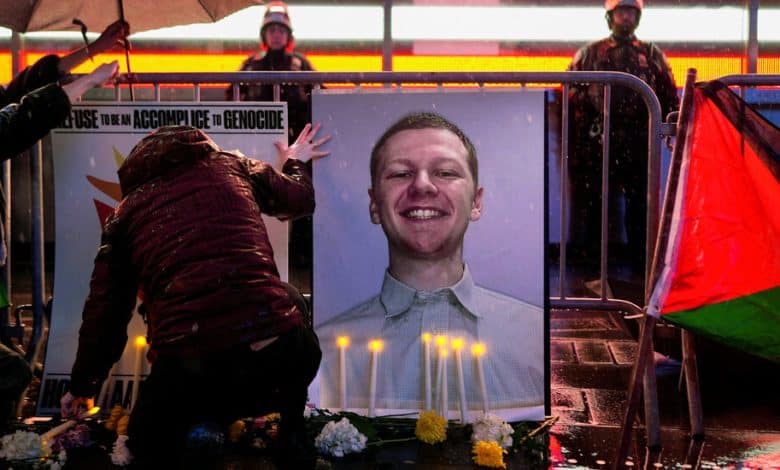U.S. Airman’s Winding Path Ended in Self-Immolation to Protest Israel

Dressed in his U.S. Air Force uniform, Aaron Bushnell walked up to the Israeli embassy in Washington one afternoon this week and calmly described his intention to “engage in an extreme act of protest” against Israel’s military offensive in Gaza.
He proceeded to pour a flammable liquid over his buzz-cut head, pulled his camouflage cap tightly over his forehead and lit himself on fire. “Free Palestine!” he shouted several times before collapsing onto the cement.
In the days since his stunning act, which Mr. Bushnell captured on a livestream, friends and relatives have been trying to understand how a young man they once knew as a shy, thoughtful boy in an isolated Christian community in Massachusetts, who went on to become a senior airman working on cyberdefense in Texas, came to mount such a final, fatal protest.
“It’s hard to wrap my head around,” said Ashley Schuman, 26, who has known Mr. Bushnell since childhood. “I’m just like, ‘How? How did you get here?’”
Mr. Bushnell’s self-immolation has spurred a flurry of vigils in his honor, prompted new protests against Israel’s attacks and led to criticism from some who viewed the protest as a suicidal act that should not be celebrated.
His was the second such protest in the United States in recent months. In December, a woman with a Palestinian flag lit herself on fire outside of the Israeli consulate building in Atlanta; she was not identified, and she has remained hospitalized, currently listed in stable condition. On Wednesday, Senator Tom Cotton, Republican of Arkansas, asked the Defense Department whether Mr. Bushnell had ever shown any “extremist leanings” in the past.